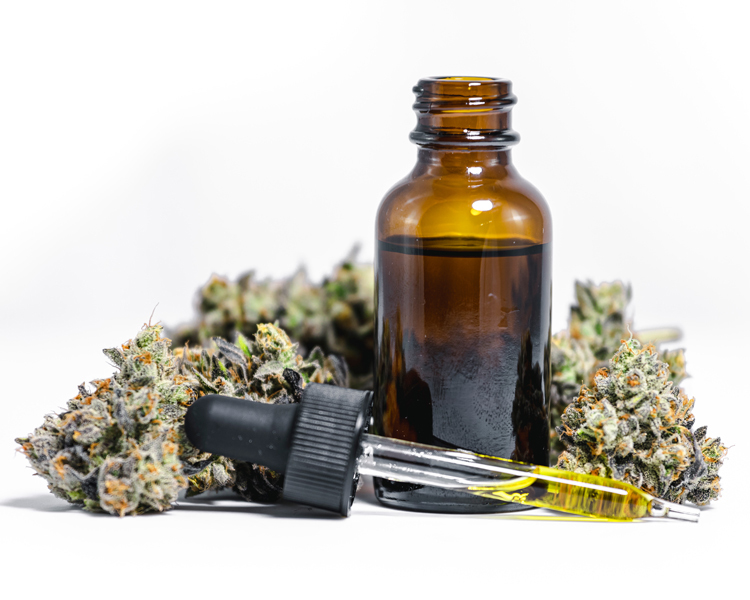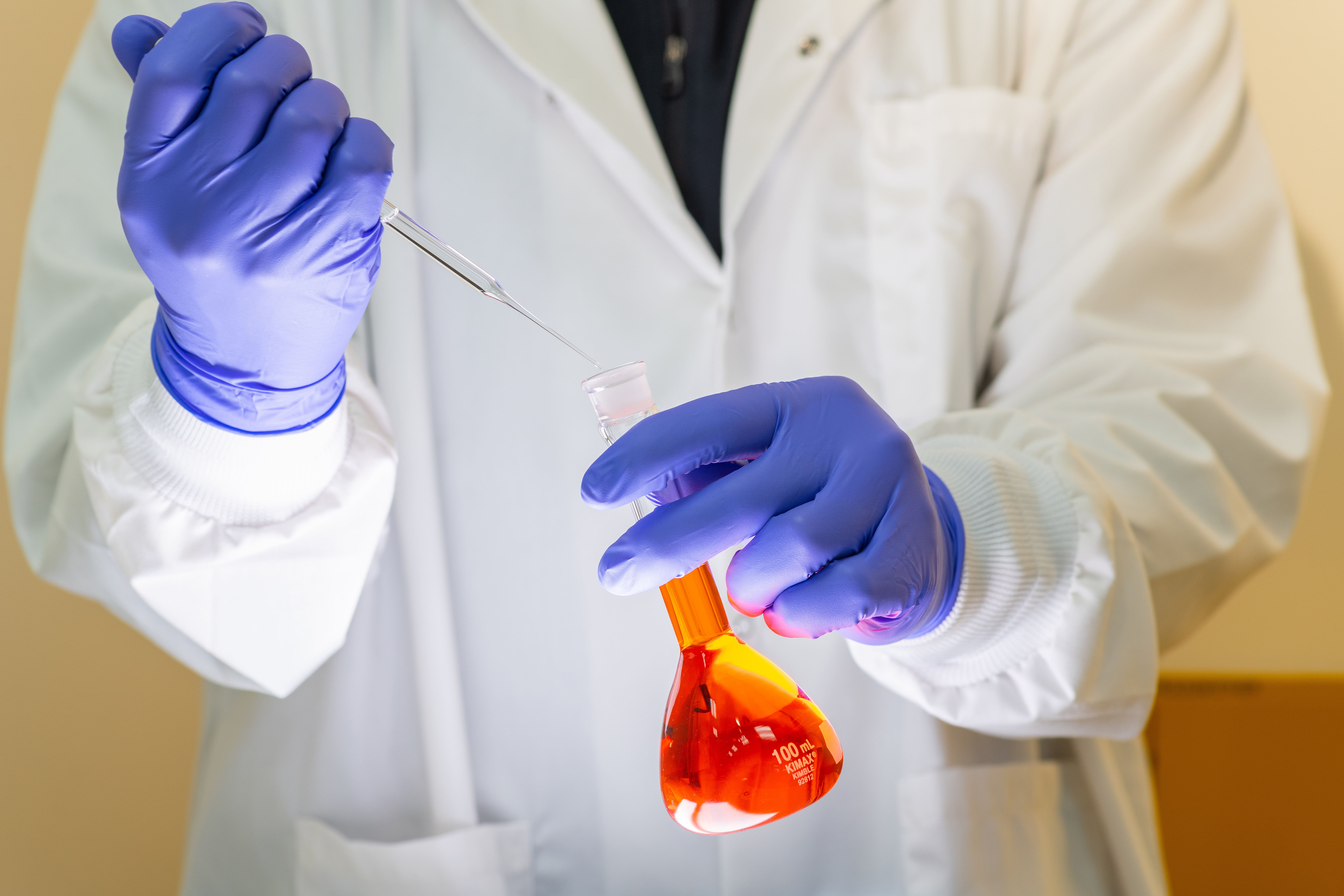What to Watch Out for with Synthetic CBD
Cannabidiol (CBD) products are everywhere, but not all of them are natural. As the natural hemp/CBD market continues to grow, the influx of synthetic CBD products is also proliferating. We’re going to take a closer look to help you understand some of the differences. To understand how synthetic CBD differs from natural whole plant hemp CBD, it’s important to understand a few things about synthetic CBD:
- What synthetic CBD is
- Why it is becoming so popular
- Legalities
- Health risks
What Is Synthetic CBD?
Synthetic CBD is a chemical-based formula that’s designed to mimic the effects of real CBD inside the body. It tricks your body into thinking that CBD is present, even though it isn’t.
Hemp-derived CBD is a cannabinoid, a natural compound found in hemp that binds to cannabis receptors in the body. According to the National Library of Medicine, “CB(1) receptors are present in very high levels in several brain regions and in lower amounts in a more widespread fashion. These receptors mediate many of the psychoactive effects of cannabinoids. CB(2) receptors have a more restricted distribution, being found in a number of immune cells and in a few neurones.” Basically, the endocannabinoid system (ECS) provides us the “wiring” with receptors in our brain, nervous system, and body tissues that synthesize natural cannabinoids.
These chemical interactions are responsible for the physical and therapeutic effects of cannabidiol. Synthetic CBD binds to these same cannabinoid receptors, but sometimes with unwanted side effects (discussed in more detail below).
Why Is Synthetic CBD Becoming Popular?
There are several reasons why synthetic cannabidiol is making its way into stores.
- It’s easier to mass-produce. If you’ve seen products such as “Spice,” “K2,” “Scooby Snax,” or “AK-47” (among others) sold in your local convenience store or smoke shop, you’ve seen synthetic cannabinoids.
- Large quantities of hemp are required to extract small amounts of pure, natural cannabidiol. The laboratory production of synthetic CBD is more streamlined. Synthetics are produced using chemicals or by using bacteria or modified yeast through biological synthesis.
- It’s cheaper to produce and sell. Synthetic CBD doesn’t require the acres of hemp, the large production facilities, the million-dollar, highly scientific extraction tools, or the vast regulatory oversight.
- It’s an easy way to skirt legal restrictions. Though hemp-derived cannabidiol products are legal at the federal level, many states are enforcing strict CBD regulations. Synthetic products aren’t subject to these regulations in all states—making them circumspect, which is why consumers should be careful.
Is Synthetic CBD Safe?
Synthetic CBD products are becoming increasingly widespread, and some of them, according to a warning from the CDC, can be hazardous to your health. Specifically, the CDC statement says, “The health effects from using synthetic cannabinoids can be unpredictable and harmful—even life threatening.” Some effects can be toxic and result in reactions with rapid heart rate, vomiting, agitation, confusion, and hallucinations, requiring emergency services.
Synthetic CBD can be unsafe and should be taken with fair warning, and possibly avoided. Another notable factor is that they are usually synthesized with harmful chemicals such as fluoride, bromide, bleach, and many others.
How Do People Take Synthetic CBD?
Just like real cannabidiol products, synthetic CBD is typically mixed with a carrier liquid (coconut, MCT, or palm oil) and sold as a liquid-based tincture. The liquid is applied beneath the tongue using a dropper, and is then absorbed into the bloodstream.
Therefore, it’s so easy to purchase synthetic cannabidiol thinking that it’s the real thing. The preparation and packaging often look the same. You must read the label carefully to know what you’re getting.
Is Synthetic CBD Legal?
Although synthetic cannabinoids are manufactured, in part, to get around anti-marijuana laws, the legality of over-the-counter synthetics is questionable, at best. While there are no laws prohibiting the cultivation or sale of synthetic CBD, the FDA has been calling it illegal.
The following comes directly from the CDC’s website:
Many synthetic cannabinoids are illegal.
- The federal government has banned many specific synthetic cannabinoids. Many state and local governments have passed their own laws targeting other synthetic cannabinoids.
- Recent federal and state laws targeting synthetic cannabinoids have banned general categories of ingredients, rather than specific chemicals.
- Makers of synthetic cannabinoids try to get around these laws by creating new products with different ingredients or by labeling them “not for human consumption.”
Synthetic cannabinoid products are unsafe. It is hard to know what the products contain or what your reaction to them will be.
- There are no standards for making, packaging, or selling synthetic cannabinoid chemicals. That means that two packets of a brand-named product may have completely different chemicals.
- The amount of the synthetic cannabinoid chemical(s) can vary between batches or even within the same batch.
- Synthetic cannabinoid products may also be contaminated with other drugs or toxic chemicals, such as synthetic cathinones (“bath salts,” “flakka”).
Why Use Whole Plant Hemp Extracts …
Using high-percentage CBD derived from whole plant hemp extracts allows you to receive all the natural benefits of the plant without all the side effects that synthetic isolates can produce. Isolates can be derived from the whole plant, as well, but all of the processing is performed under strictly scientific, rigorously regulated, food-grade, cGMP-certified conditions. As well, PHCO2’s process is a highly proprietary supercritical CO2 extraction method, proven with over 40 years of expertise in the remediation industry—known for our pioneering advances in supercritical CO2 extraction.
We produce full-spectrum and broad-spectrum whole plant extract ingredients with high-percentage CBD (or other cannabinoids). One of the purported benefits of taking natural CBD is that people experience the “entourage effect.” The naturally occurring compounds—other cannabinoids, terpenes, and flavonoids—work together synergistically, eliciting a more potent therapeutic result for people using it. Importantly, adverse side effects are rarely reported. This very much appeals to people who feel more comfortable using natural alternatives as opposed to pharmaceutical medicine.
Common uses for hemp-derived CBD include:
- Pain management
- Anti-inflammatory properties
- Sleep solutions
- Anxiety relief; enhance focus
- Siezure control for epilepsy
Markets and Applications of Hemp-Derived High-Percentage CBD
Still being a relatively new and emerging market for whole plant hemp extracts, there are many new applications that continue to pop up. A review of applications in the industry includes balms, lotions, creams, capsules, drinks, gummies, tinctures, shampoo, and many more under research and development, and CBD 1:1 blends in the cannabis sector.
- Nutraceutical
- Cannabis
- Food/Snacks
- Beverage
- Sport/Energy
- Pet
- Equine
- Coffee
- Candy
- Liquor
Interested in Natural Hemp-Derived CBD Ingredients?
If you aren’t a grower or don’t have the scaling capacity yet, and have requirements for whole plant hemp extract, our conventional line of remediated whole plant hemp extracts is the perfect solution for you. Also available are our PHCO₂™ USDA-Certified Organic whole plant hemp extracts for your ingredient requirements.
We’d love to talk with you about your ingredient needs. Ask us about our USDA-Certified Organic ingredients with all natural minors, in broad-spectrum and full-spectrum; American conventional broad- and full-spectrum; and MDAR-Certified Organic whole plant extracts, also in broad- and full-spectrum. Contact us today to begin the conversation.
.png?width=218&name=phasex-logo-home%20(1).png)


